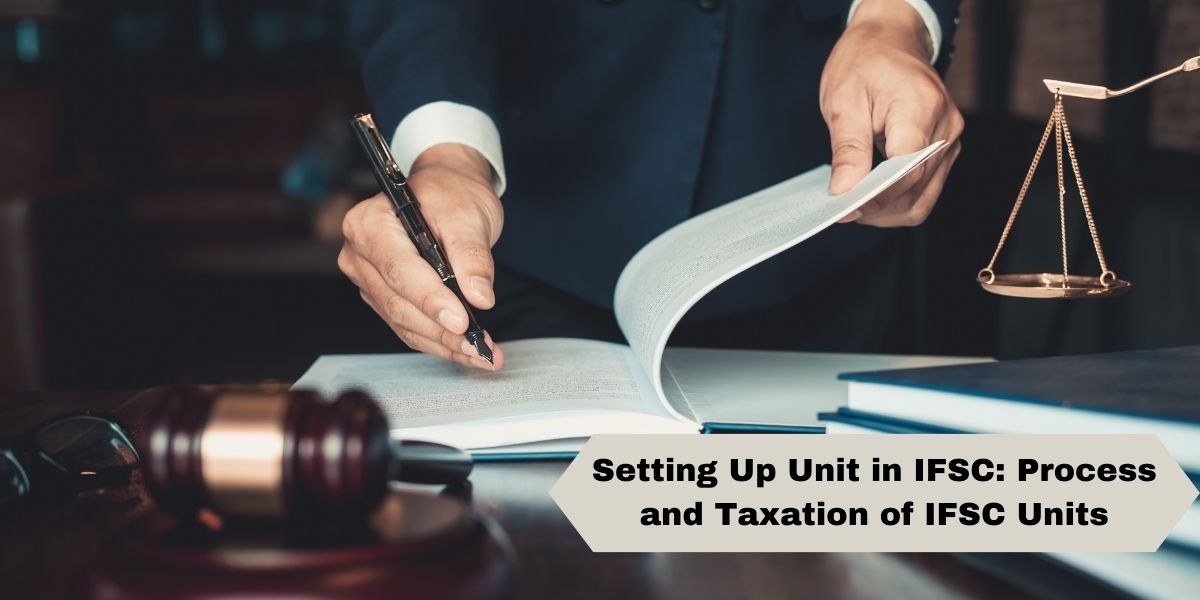As the demand for international financial services increase, there is a strong need to set up businesses in a business-friendly and well-established environment. The government is also actively promoting this by setting up International Financial Services Centres (IFSC). For instance, the Gujarat International Finance Tec-City (GIFT City) was set up that quickly gain popularity among businesses that are willing to tap and expand into international financial markets. Let’s uncover IFSC to understand more about it, how you can set up a unit in IFSC like Gujarat GIFT City and how does taxation for IFSC units works.
What is an IFSC?
Also known as International Financial Services Centre, an IFSC caters to customers outside the jurisdiction of the domestic economy. They deal in financial products and financial services across the border.
Services Provided by the IFSC
Following are some of the many services provided by IFSC units:
- Fund raising services for government, corporations and individuals
- Wealth management
- Asset management services and global portfolio diversification
- Risk management services. This includes insurance and reinsurance.
- Global tax management. This also includes international tax liability optimisation that creates great business opportunities for accountants, financial intermediaries and legal service providers.
- Corporate and global treasury management services including liquidity management, fund raising and asset and liability management.
- Facilitating cross-border mergers and acquisitions
Procedure for Setting up an IFSC Unit
If you wish to set up an IFSC unit, then you need to follow the below process to set up a unit in IFSC:
- You need to submit a request letter to the developer for setting up a unit in IFSC.
- The Development Commissioner (DC) will verify the application letter before forwarding it to the Unit Approval Committee (UAC) for consideration. An authorised representative of the entity shall attend the meeting of UAC to present himself.
- If the UAC is satisfied, the DC shall issue a letter of approval to the entity.
Documents and Annexure Required
While submitting the application for setting up a unit in IFSC along with the annexure, the following documents and annexure should be submitted:
- A demand draft for the applicable payment in the name of the prescribed authority
- Provisional letter of allotment along with the No Objection Certificate obtained from the SEZ
- A detailed project report of the entity. It should include the following:
- Background and profile of the organisation
- The proposed cost of the project and means of financing the same
- Projected balance sheet for the next 5 years
- Projected profit and loss statement for the next 5 years
- Proposed employment generation for the next 5 years
- Description of the services offered in India and abroad
- Details of the proposed project
- Details of the foreign market and technical collaboration
- Registration certificate and identity proof of the entity
- Memorandum of Association and Articles of Association (in case of companies) and LLP Agreement (in case of LLP)
- Resolution for setting up of a unit in the IFSC
- Details of the directors/partners along with their identity proofs
- Audited financial statements and income tax returns of the entity and its directors/partners for the last 3 years
- Scope of activities to be carried out by the IFSC
- Any other document as may be required
Taxation Aspects for Units Registered in IFSC
One of the major benefits of setting up a unit in IFSC is the taxation benefits it carries. Following are some of the tax incentives for IFSC units:
- Concessional Tax Rates: Certain tax rates like rates specified under section 112A and 111A are concessioned in case the transfer of securities take place through a recognised stock exchange in any IFSC and the consideration for transfer of such securities is received in foreign currency.
- No Tax on Dividends: If the domestic company is a unit located in IFSC and distributes dividends to its shareholders, then it shall not be taxable for the company or its shareholders.
- Reduced MAT and AMT: The MAT and AMT rate have been concessioned to 9% for a unit or company located in IFSC if it derives its income only in convertible foreign exchange.
- Exemption from Transfer: Section 47(viiab) specifies that if a non-resident transfers specified securities on a recognised stock exchange located in any IFSC, by then such transaction shall not be regarded as transfer.
- Other Benefits: Some of the other taxation benefits for a unit located in IFSC are as follows:
- Certain incomes are exempted as per Section 10(4D)
- Concessional tax rates as per Section 115AD
- Exemption as per Section 10(23FF) in relation to capital gains income
- Interest on borrowings: If an IFSC unit has borrowed money from a non-resident, then the interest received or receivable in relation to such borrowings shall be exempt from tax for such non-resident.
Summing Up
IFSC is set up by the government to enhance the ease of doing business and promote international services among Indian companies. The government has put in place multiple taxpayer-friendly provisions especially curated for the units in IFSC to encourage more and more businesses to export financial services through IFSC. In case you wish to set up a unit in IFSC or want to understand the taxation aspects of IFSC units, feel free to contact the ASC Group.
Also, Read - Non-Residents Can E-File Form 10F Without PAN



























































Leave a Reply
Your email address will not be published. Required fields are marked *